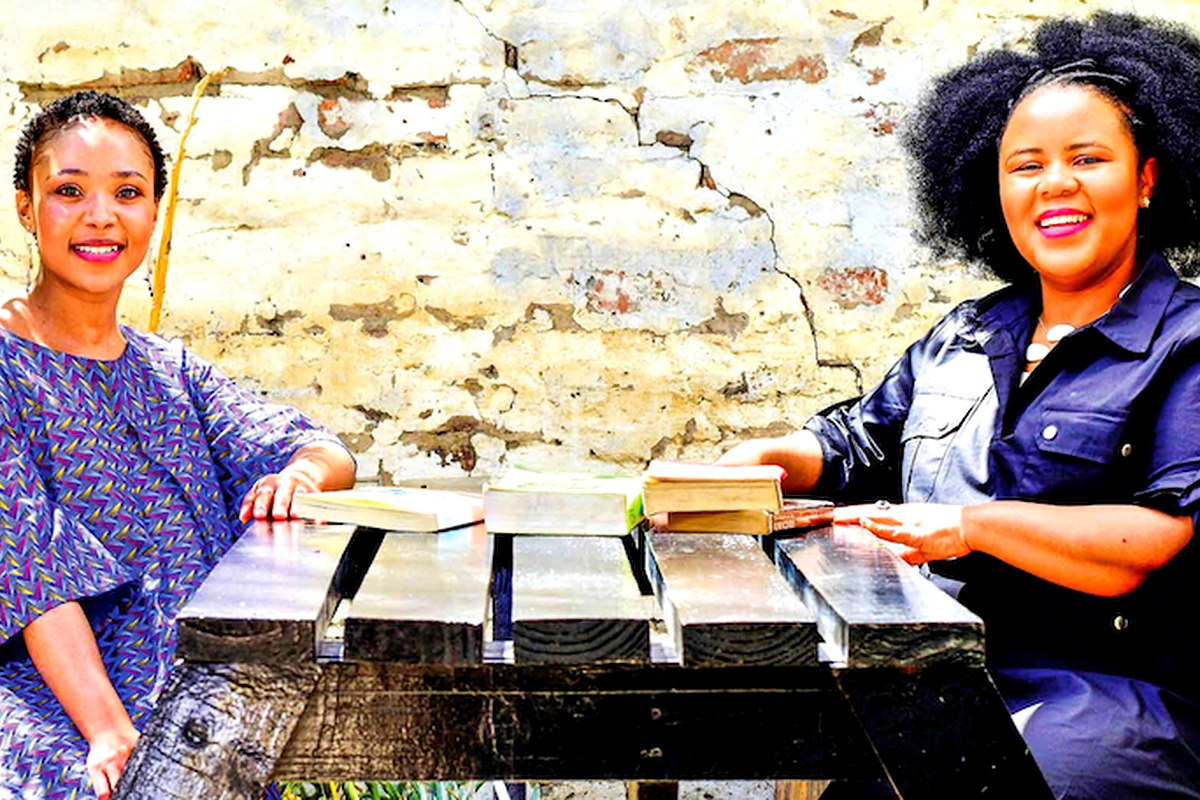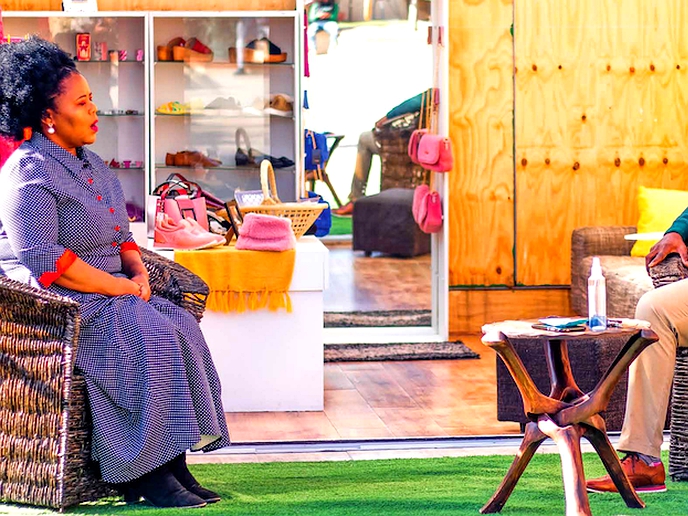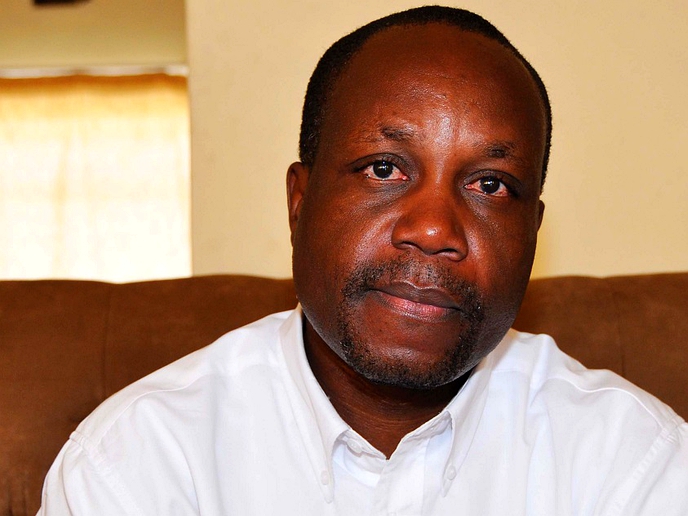Lerato Mphaka is an Information Systems professional with a passion for technology’s ability to connect people and foment human effort. She holds qualifications in Information Systems, Client-Centric Business Strategy, Project Management, Business Systems Analysis using Design Thinking methodology, Innovation and Design Thinking Methods, and UX Design.
news
Oct. 9, 2020
STAFF REPORTER
6 min read
Thought Leader with Advocate Ndumo (part 4)

Ms. Mphaka (LM) has studied at institutions of higher learning such as the National University of Lesotho (NUL), the University of Cape Town (UCT), the University of Stellenbosch, and the University of Virginia (USA). She is currently pursuing an Executive Data Science management certificate with the University of Stellenbosch, as well as an MBA (Leading Innovation and Change) with York St John University.
She has over 10 years’ experience in corporate Lesotho spanning the banking, insurance, and telecommunications sectors. She currently exercises her skills as a Product Pricing and Client Experience Manager at Nedbank Lesotho and is the Founder and Executive Director of the Learning Mindset Foundation.
She is also the former Chairman of the MMI (Momentum Metropolitan International) Millennial Advisory Board. Her current obsession is the growing phenomenon of BIG data and predictive analytics, more specifically, the impact of analytics on organizational competitive advantage.
She is an avid learner of BI and NoSQL tools like Hadoop and Qlikview, however, she will never forget her love for C++, fuzzy logic, and AI. Today, she discusses issues on Pioneering Digital Skills Acquisition in Lesotho with Advocate Mothepa Ndumo (MN)
MN: The Learning Mindset Foundation, of which you are the Executive Director, is regarded as a digital skills pioneer in Lesotho, what motivated you and your team to venture into this territory?
LM: The Learning Mindset Foundation was what I and nine of the founding members regarded as an answer to the current digital skills acquisition gap we saw in the country. It was perhaps an answer in three parts.
The first of which was to create an entity that veered away from a traditional understanding of tech skills as coding skills. The field of tech is quite broad, and we felt it was not being explored in its entirety. This is why we specialize in Design, in UX, and Data Visualization as core skills.
Secondly, the Foundation sought to answer a question the founding members posed to themselves: “What do we wish we had available to us after completing our high school leaving examinations?” We realized that Basotho youth have an 8-month gap between high school and tertiary which was currently not being filled through a concerted program of skills acquisition that frankly young people need if they are to compete in the future world of work.
Thirdly, the Learning Mindset Foundation was borne out of the need to democratize digital skills acquisition. This philosophy is what makes our programs freely accessible or very affordable to access.
LM: If you were to be given a free hand to design a digital skills acquisition policy for Lesotho what would its broad contours look like and what would inform your emphases?
MN: The fundamental question we need to ask ourselves is about our place in the emerging digital economy. Who do we want to be exact and what will it take us to get there. Are we suppliers of an aspect of the economy or are we just consumers?
Personally, I think it is time we became suppliers of technology, from manufacturing, all the way to software development and supporting consumption policies on the continent. My policy scope would then center on ensuring that Basotho youth have access to these three broad strokes of knowledge.
When you talk access, one needs to understand that we need centers of excellence in this country that specialize in technology creation and we need infrastructure that permeates to the remote villages and underdeveloped towns to create local technology hubs.
We need engineering schools, we need design schools and we need business schools to ensure that we understand how to create products, and how to play in the market we want to participate in.
These specialist schools would focus on computer and robotic manufacturing, cloud technology, cybersecurity, user experience and design, technology inclusiveness, legal-tech, new age marketing techniques such as digital and social media marketing, as well fintech solutions like blockchain technology.
They would all target young Basotho coming out of high school, those coming out of tertiary as well as those seasoned professionals who want to upgrade their skill set. Not only does this create an avenue of access beyond our traditional degrees, but it also ensures that we circulate currency within the country.
Currently, if any Mosotho wishes to get an MBA, one of the most lucrative qualifications for an incumbent and the offering institution, they have to go out of the country to get it. The same applies really with the majority of the emerging digital skills.
If we want to stop being consumers, we need to ensure that we can produce knowledge in the country first. We already have entities doing this work. The Learning Mindset Foundation, Basali Tech, Girls Coding Academy, Gem Institute, Start Smart, etc. are all testimony of the ability to create these programs. The policy will help scale the impact immensely.
Enjoy our daily newsletter from today
Access exclusive newsletters, along with previews of new media releases.
MN: What are some of the latest discussions and debates in the digital skills and tech world that Lesotho needs to keep a finger on the pulse of, especially in the context of COVID-19 and the reimagining of economies?
LM: A lot of Basotho have a perception that conversations around the 4th Industrial Revolution, in general, do not affect us, and frankly, this is not the case.
Whether you believe in edge computing or not, you are still being tracked and your devices are still talking about you even though you simply bought the smartwatch to be able to answer your phone calls easily.
So, we are all consuming participants in this revolution, and we need to start actively directing HOW technology enters our personal and professional lives instead of having it simply happen to us.
Importantly, in Lesotho, our private sector is mostly foreign-owned, with developments in those “mother” countries affecting our own development in those entities locally. This means, if the “mother” company is looking to automation, the likelihood is that it will permeate to the subsidiary, and if we are not prepared to upskill, our jobs may be at risk. These are all facts of automation and robotics and these are conversations being had regularly by entities like the World Economic Forum. In my opinion here are the issues we need to be looking out for:
1. The idea of robotics and automation and the impact on repeatable (even if it is expert) work.
2. The issue of global surveillance and the balance between being surveilled and my human right to privacy.
3. We need to begin the conversation around transition management. How are people going to safely reskill themselves as the disruption hits them, and perhaps specifically, are we going to have social safety nets like universal basic income, skills acquisition funding, and assisted entrepreneurship?
4. How are we going to retire outdated technology safely in a manner that does not negatively impact our environment?
5. The data question - who owns data, is a burning issue as platform businesses like Google and Facebook go into the trillions, assisted by ourselves through the data we generate, should we not be paid for our participation and our data?
6. Finally, what exactly will the world of work look and feel like, in an era where we can extend our lives (through 3D organs), can retirement ages be extended and what will that mean for young labour?
7. So as you can see, with this revolution, the conversations are more about what life will be like as opposed to what the latest technology will look like. That is the pervasiveness of technology going forward. No aspect of our lives will be the same.
MN: How do all Basotho get more involved in the digital skills and tech world in a manner that will be productive for all of us (as opposed to creating and reinforcing toxic digital cultures)?
LM: Firstly, we need to become more curious about the things we are using daily. We need to ask ourselves questions about our popular apps and why none of them are made by a Mosotho, and what it would take for us to have local rivals to those apps. Secondly, we also need to cultivate a mindset of lifelong learning. The state of the world right now, and into the future, is indeed volatile, uncertain (look at how 2020 turned out), complex, and ambiguous. It will require a mind geared to pivot thinking, to empathy and human-centered problem-solving. It will require someone who walks down five different learning paths at the same time. Getting ready is an individual responsibility, one we must answer if we are to survive...and thrive.
Morena O boloke Lesotho le Basotho
Tailored for you





